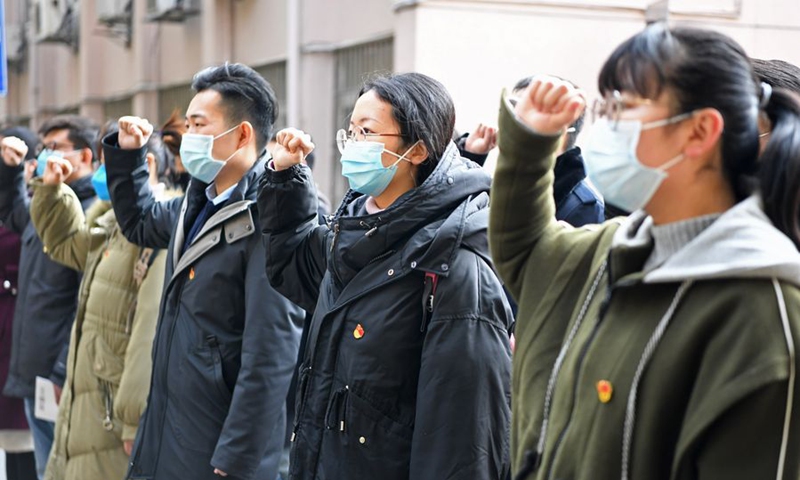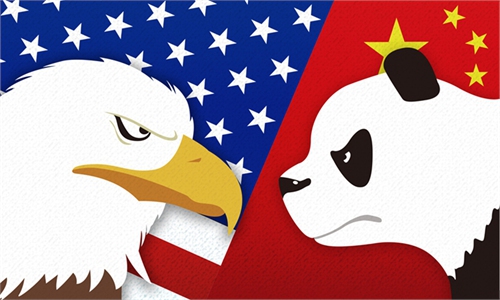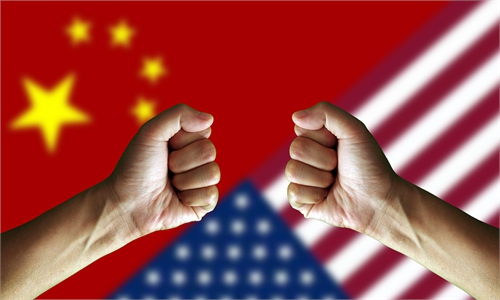West hypes ‘leaked' list of CPC members to sow discord in foreign institutions
Foreign firms in China voice respect for employees’ political affiliation

Members of the Communist Party of China swear to fight against the novel coronavirus-related pneumonia in Xihu District of Nanchang, east China's Jiangxi Province, Jan. 31, 2020. (Xinhua/Wan Xiang)
Some Western media, using an alleged name list of 1.95 million members of the Communist Party of China (CPC), have launched a new round of witch hunts by accusing the people on the list of working in foreign consulates in China and foreign companies' Chinese branches for intelligence purposes, even though the authenticity of the database has been highly questionable.
Observers said that the narrative that connects CPC membership to intelligence work and security risks was "ridiculous and ignorant of Chinese society."
CPC members are working in foreign consulates in Shanghai and Chinese branches of major foreign companies, including IKEA, Volkswagen and Pfizer, an Australian media outlet the Australian and the UK's Sunday Mail reported, citing a "leaked document" presented by the Inter-Parliamentary Alliance on China, a newly established ideologically driven group of some 150 legislators, including US anti-China Senator Marco Rubio.
The leaked name list involves 1.95 million people and includes their birth dates, positions, ID numbers and some phone numbers.
Ignoring the fact that it constituted a massive privacy breach, Western media hyped the list as evidence of CPC-sponsored intelligence activities, despite failing to prove that any of the 1.95 million is connected to intelligence affairs.
The reports described the stealing of CPC members' private information as a brave action to reveal the Party's structure and "infiltration," without mentioning its illegal nature and harm it caused to those alleged Party members who are just ordinary people.
The database may also be fabricated, Chen Hong, a professor at East China Normal University, whose name is on the list, told the Global Times on Monday, pointing out that he was never a member of the CPC but was a member of another party in the Chinese political system.
"I suspect the database is completely erroneous," Chen said.
Volkswagen China told the Global Times that joining any political party is an employee's personal decision and they do not interfere. Volkswagen respects every employee's political affiliation globally and their business will not be affected by that. Volkswagen has not set up a Party branch in China.
IKEA, one of the companies said to have CPC members on its payroll, told the Global Times on Monday, "We don't have knowledge of, or an interest in, our co-workers' political party affiliations. We respect each other's different views and strive to be an inclusive workplace for all."
Employees of companies included in the database also found the reports of being a "security risk" ridiculous, as companies would not care about their employees' political stance and affiliation. "Will your employer in the US ask whether you are a Republican or a Democrat before recruiting you?" an employee of a multinational firm in Shanghai asked, speaking to the Global Times on condition of anonymity.

Photo: Li Hao/GT
Some people reached by the Global Times pointed out that speculation of CPC members posing security risks is another example of how little anti-China forces know about Chinese society.
"I joined the CPC in university and later worked for a foreign cosmetics firm. My CPC membership has nothing to do with my job," said another anonymous source.
Even some Twitter users found the reports absurd, and labeled the demonization of CPC "Western fragility." Another shared his experience of working in Shanghai where his colleagues were proud of their membership and openly told others about it, which is obviously not what an intelligence agent should do. "What exclusive story? … The West paints the Party as a monster. For locals, it's an honor to be a member and they openly share it with everyone."
Stigmatizing and demonizing the CPC is not a new trick for the anti-China clique. The US recently announced visa restrictions on CPC members and their families in a move that many say is blatant McCarthyism.
But hyping the threat of CPC members to companies and organizations in China is even more sinister, as they are pointing fingers at Chinese nationals working in Chinese territory, Chen said, warning that "such moves aim to sow discord between the CPC and Chinese people."
Analysts also pointed out that citing "exclusive sources" and "leaked documents" to hype up a topic and manipulate public opinion in order to press the government into implementing certain types of policies, in this case the persecution of CPC members, is a usual trick for Western political forces.



